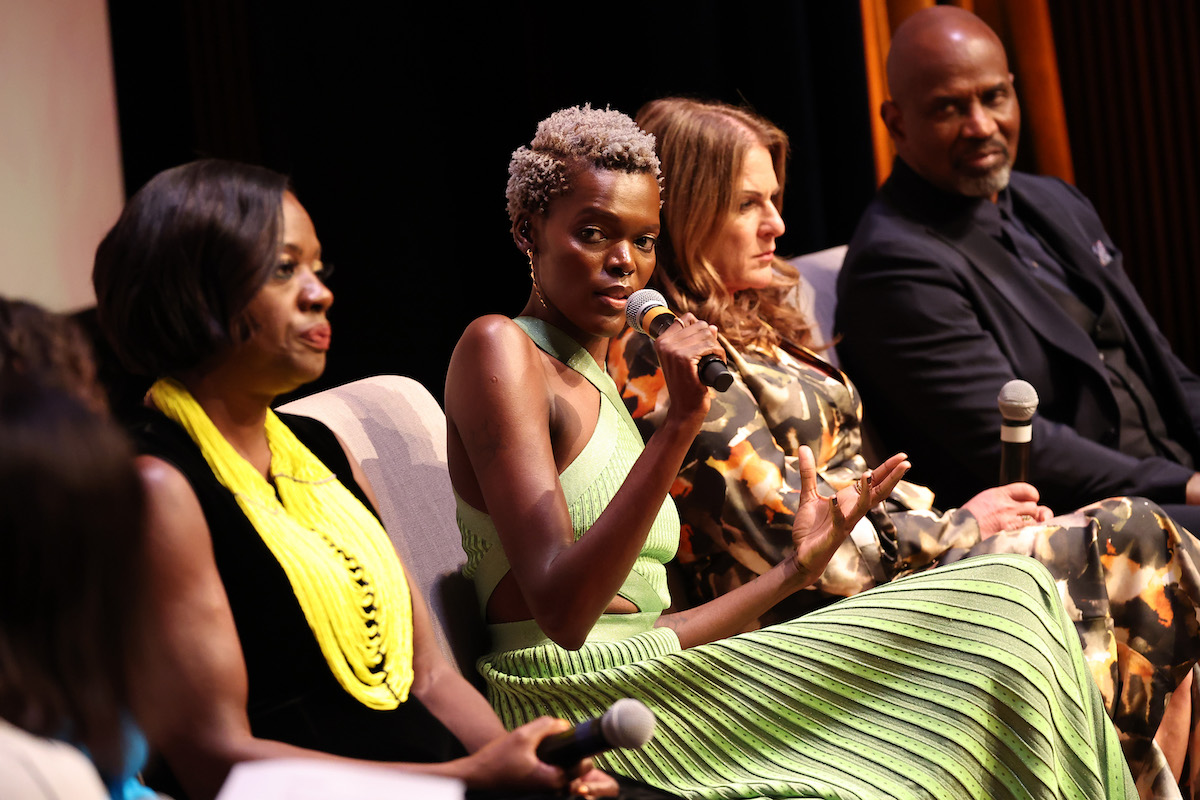
‘The Woman King’: The Complex Real-Life Slave Trade of the Dahomey All-Female Military Unit
When you attempt to bring a true story to the big screen, the road is bound to get bumpy. Movies rooted in some of the world’s most dramatic and complex moments easily become Hollywood’s biggest successes. But they can also create ethical questions.
The Woman King aims to bring the tale of the Agojie warrior women into focus for a mostly unfamiliar audience. The ambitious 2022 film is earning high praise from some viewers. But others are critical of how it handles the subject matter. Let’s take a closer look at why capturing this history and balancing it with entertainment is challenging.
‘The Woman King’ is based on the real-life Agojie warrior women
LA Times‘ Sonaiya Kelley connects the fictional Dora Milaje, warrior women of Black Panther’s Wakanda, with the real-life Agojie. In The Woman King, the Agojie’s story is treated more directly.
Directed by Gina Prince-Bythewood, the film has been a labor of love that almost didn’t happen. According to The Hollywood Reporter, “The Woman King is the product of a thousand battles [Viola] Davis, 57, and Prince-Bythewood, 53, have waged over the course of their careers, on subjects ranging from budgets to hairstyles.”
The woman involved in this process (writers Maria Bello and Dana Stevens, director Gina Prince-Bythewood and star Viola Davis) had their own meaningful reasons for wanting to see it to completion. Telling the story of Black women and centering a tale of African history on something other than victimhood was an incredibly important and representative project.

How does ‘The Woman King’ stack up against reality?
Just how true is the tale The Woman King weaves about the Agojie warriors? The kingdom of Dahomey — the place where the story is centered — is rooted in reality. As Kelley writes, Dahomey was “under the thumb of the Western-influenced, richer Oyo empire” in 1823 and “forced to pay tribute in the form of virgins, guns and captives to be sold into slavery to European colonizers.”
When it came time to stand up to this colonizing powerhouse, the Agojie led the resistance. This group of women warriors sent ripples out into history still felt today.
In this brazen retelling of the events, the Agojie are a force to be reckoned with. They have justice on their side, but the real-life tale is not so neat and tidy. The New Yorker‘s Julian Lucas writes that the film “crosses the line from reasonable fiction into cynical distortion of history.”
The problem, as Lucas sees it, is one of fidelity to the complex realities of Agojie’s participation in the slave trade and brutal treatment of the enslaved people.
Lucas quotes a passage from Zora Neale Hurston. In 1928, she interviewed one of the last surviving people captured by Dahomean soldiers and brought to America as slaves.
Oluale Kossola told a tale of the brutal treatment he witnessed the Agojie soldiers inflict. “No man kin be so strong lak de woman soldiers from de Dahomey,” he explained. It’s this attention to slavery without telling the full story that Lucas and other critics see as unacceptable.
Lucas explains that the film could have chosen to be “an amoral epic about swordplay and statecraft” or a story of colonial resistance against French colonizers. However, the film “chooses to make resistance to slavery its moral compass, then misrepresents a kingdom that trafficked tens of thousands as a vanguard in the struggle against it.”
Did Lupita Nyong’o leave ‘The Woman King’ because of the brutal historical truth?
As The Woman King was under production, Lupita Nyong’o was announced as part of the cast. The fast-rising star played one of Black Panther‘s Dora Milaje. She was initially excited about the new project. Nyong’o was, in fact, so excited that she headed to Benin to make a documentary about the Agojie.
During the creation of the documentary, however, Nyong’o learned more about their brutal history. She concluded that “any notion of the Agojie being a beacon of enlightened feminism, like the Dora Milaje in Wakanda, is long gone.” After working on the documentary project, Nyong’o departed from The Woman King.
While she never specifically mentioned the film in her documentary, many onlookers have concluded that she was no longer interested in portraying the women warriors after learning more about their complicity in the slave trade and its brutal consequences.


